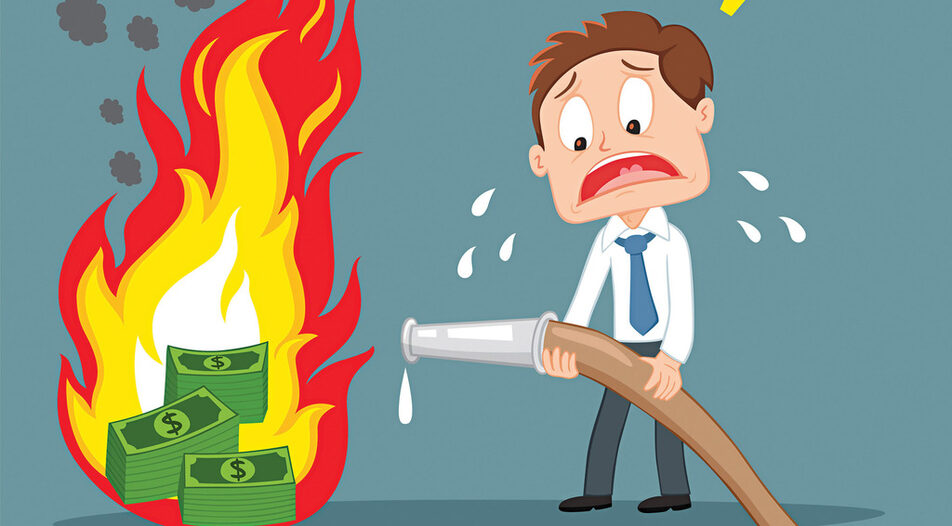- The government will spend 2 billion levs on populist measures without targeting the most vulnerable groups in society
- Some of the proposals will improve the business environment, but the aid to buyers of petrol and bread is a populist step
- The measures will not stem the rise in prices, and if we believe the economics textbooks, some of them will even spur inflation
Due to the war in Ukraine and the damages caused by Covid-19, many European countries have decided to introduce measures intended to slow inflation and help people.
Bulgaria is not an exception. Inflation in Bulgaria hit 14.4% year-on-year in April. But the difference is that the government's measures can even increase it if we believe economics textbooks.
Politicians usually choose to propose some palliative remedies to support incomes instead of introducing unpopular measures. However, if the support is for everyone, there is risk of additional inflation. Therefore, according to most economists, it is better to apply measures targeted at certain low-income groups of the population, which are most affected by rising prices. However, this is not what is done.
Two good measures
The government proposed a package of 11 measures valued at 2 billion levs (1 billion euro) that will be spent within half a year. According to Finance Minister Assen Vassilev, the money will come from additionl budget revenue. The government also has reserves - planned but not made capital expenditures stand at record high (over 8 billion levs). Also, higher inflation fills the revenue side of the budget even further.
The measures will take effect in July, with many of them expected to be in place until the end of the year. Others will have a duration of one year and still others are long-term. There is still not enough information on how they will be applied and what exactly the expected effect will be.
Some of the measures have nothing to do with the current crisis, but they will have a positive effect on the business environment. Such an example is the idea of lowering the interest rate applicable to companies and individuals in case of overdue payments to the National Revenue Agency for taxes and social insurance, utility bills, on some bank loans. It is currently set at 10 percentage points above the base interest rate (BIR) of the Bulgarian National Bank (BNB), which has been statnding at zero for years. The idea is apply BIR + 8% for companies and BIR + 4% for individuals. Such a change will help debtors, as high penalty interest rates sometimes make overdue payments uncollectible. It will also ensure that more resources remain available to companies. Another similar idea is raising the threshold for VAT registration from 50 000 levs to 100 000 levs. This move will help small businesses, which will have fewer costs for accounting and administrative services.
The government also presented an energy package for businesses, which cancelled protests scheduled by employers. Due to soaring electricity and natural gas prices, companies will receive significantly higher compensation compared to previous months, so they will not feel the increase in gas prices from the beginning of May, and electricity will be even cheaper. This will cost the state 350-400 million levs per month, but unlike other aid and tax relief, the funds will come directly from the energy sector - from the record high profits of Kozloduy NPP and increased revenues in the Electricity System Security Fund.
This can be defined as an anti-inflationary measure, as it directly reduces costs for businesses and producers and should suppress rising final prices. Practically, despite the price fluctuations on the local energy exchange, for Bulgarian companies the price of electricity has remained almost unchanged since September.
Populist ideas
And if the above ideas do not require budget funds, this is not the case with the other measures. The most pointless and populist of them is the one for a zero VAT rate on bread. According to Capital Weekly sources, this idea belongs to the Bulgarian Socialist Party (BSP) and There is Such a People (TISP). It was initially rejected by the council of the leaders of the governing coalition but when it emerged that none of the measures proposed by TISP had been adopted, We Continue The Change (WCC) party of Prime Minister Kiril Petkov proposed to include it in the package.
It is unclear what effect is expected from this political compromise, but it will hardly be a lower bread price for the end-user, as announced by Kiril Petkov and Deputy Prime Minister Cornelia Ninova. Minister of Finance Assen Vassilev has already said many times that a lower VAT rate on the free market does not lead to lower prices. According to him, a better measure is targeted assistance to the most vulnerable groups in society.
Even if we assume that a reduced VAT rate on bread will have some effect on the final selling price, however, this means a discount within pennies, which will save 10-20 levs per month. At the same time, it is unclear how the measure will be administered effectively. Tax consultants comment that retailers of similar products also want to sell them as bakery stuff to pay less. For example, pasta is also made from flour.
The other populist measure is the proposal for a 0.25 levs discount on each litre of regular types of petrol and diesel. First, it is unclear if this is controllable, as the focus is on individuals, but it creates a temptation for companies. Secondly, it is unclear whether this discount will not sink into a further increase in oil prices, and thirdly, the measure covers people with cars who travel a lot. And they are not the poorest part of the population. This is, in fact, the problem of many of the other measures - they encourage consumption, and hence - inflation, rather than targeting low-income people.
A reduced VAT rate of 9% for heating energy and natural gas will have more or less the same effect. Again, these measures target people in big cities, with higher incomes. In the villages and small towns, for example, many people use wood and coal for heating.
Nikola Yankov, who is a managing partner of Sofia-based Expat Capital and former Deputy Minister of Economy, commented on his Facebook profile: "This is not social policy. This is an anti-social policy. You subsidize the richest (largest consumers) at the expense of the poorest. A wealthy family in Sofia will receive several hundred levs a month from the state. A poor family in a small city in northwestern Bulgaria will receive several tens of levs," he wrote.
Distorted focus on pensions
Another measure is the planned increase in pensions by over 20%. People on a minimum state pension will receive 37 levs more than the amount they take now. In practice, the government offers nearly 10% indexation of pensions from July 1 on top of the existing monthly "Covid supplement" of 60 levs, which will become part of the basic pension. There is still not enough information, but according to the government, the minimum pension will reach 467 levs, which is an increase of over 55% on annual basis. This is the most expensive measure - it requires over 1.2 billion levs for six months. And overall, pension spending has been rising by several billion a year recently.
Or, as MRF member of parliament Hassan Ademov commented on public radio BNRin May, it is difficult to say that this money target people who need them most. "Populist demands will start to escalate, which makes me think that the government will find it difficult to behave in a statesman's way amidst escalating populism," he predicted several days before the package was announced.
- The government will spend 2 billion levs on populist measures without targeting the most vulnerable groups in society
- Some of the proposals will improve the business environment, but the aid to buyers of petrol and bread is a populist step
- The measures will not stem the rise in prices, and if we believe the economics textbooks, some of them will even spur inflation
Due to the war in Ukraine and the damages caused by Covid-19, many European countries have decided to introduce measures intended to slow inflation and help people.












